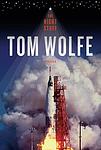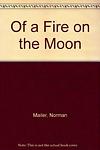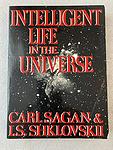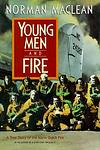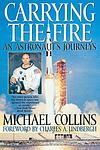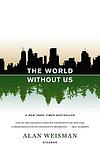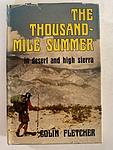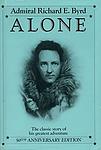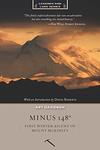The Greatest American "Physical Sciences" Books of All Time
Click to learn how this list is calculated.
This list represents a comprehensive and trusted collection of the greatest books. Developed through a specialized algorithm, it brings together 300 'best of' book lists to form a definitive guide to the world's most acclaimed books. For those interested in how these books are chosen, additional details can be found on the rankings page.
Genres
The "Physical Sciences" category encompasses a broad range of books that delve into the non-living systems of the natural world, offering insights into the fundamental principles and phenomena that govern the universe. This category includes disciplines such as physics, chemistry, astronomy, geology, and meteorology, among others. Books within this genre may cover topics from the subatomic particles and forces that constitute the fabric of space-time to the vast cosmic structures of galaxies and the universe at large. They can also explore the chemical reactions that underpin the behavior of matter, the geological processes that shape our planet, and the atmospheric dynamics that influence our weather and climate. Whether aimed at students, professionals, or enthusiasts, these books serve as a gateway to understanding the laws of nature and the scientific methodologies used to uncover them, often combining theoretical concepts with practical applications and the latest research findings.
Countries
Date Range
Reading Statistics
Click the button below to see how many of these books you've read!
Download
If you're interested in downloading this list as a CSV file for use in a spreadsheet application, you can easily do so by clicking the button below. Please note that to ensure a manageable file size and faster download, the CSV will include details for only the first 500 books.
Download-
1. Silent Spring by Rachel Carson
This influential environmental science book presents a detailed and passionate argument against the overuse of pesticides in the mid-20th century. The author meticulously describes the harmful effects of these chemicals on the environment, particularly on birds, hence the metaphor of a 'silent spring' without bird song. The book played a significant role in advancing the global environmental movement and led to a nationwide ban on DDT and other pesticides in the United States.
-
2. The Right Stuff by Tom Wolfe
"The Right Stuff" is a non-fiction novel that explores the lives and experiences of the first Project Mercury astronauts selected for the NASA space program in the 1960s. The book delves into the personal and professional lives of these astronauts, highlighting their courage, competitiveness, and the immense pressure they faced. It also provides a detailed account of the space race between the United States and the Soviet Union during the Cold War era.
-
3. The Sixth Extinction: An Unnatural History by Elizabeth Kolbert
The book explores the concept of the sixth extinction, suggesting that we are currently in the midst of it due to human activity. By examining previous mass extinctions and the current rapid loss of species, the author argues that humans are causing a mass extinction event through climate change, habitat destruction, and spreading of non-native species. The book offers a sobering look at the impact of human behavior on the natural world, emphasizing the urgency of addressing these environmental issues.
-
4. Coming of Age in the Milky Way by Timothy Ferris
This book provides a comprehensive history of cosmology, from the ancient Greeks to modern astrophysicists. It explores the evolution of scientific thought and discoveries that have shaped our understanding of the universe. The narrative chronicles the shift from geocentric to heliocentric models, the development of quantum mechanics, and the advent of theories such as relativity and string theory. The book also discusses the philosophical and cultural implications of these scientific advancements.
-
5. City by Clifford D. Simak
"City" by Clifford D. Simak is a collection of interconnected short stories that explore the future of humanity and the evolution of civilization. Set in a distant future where humans have abandoned Earth and left it to robots and intelligent dogs, the book delves into themes of loneliness, the nature of humanity, and the possibility of coexistence between different species. Through a series of thought-provoking narratives, Simak paints a vivid picture of a world where technology and nature intertwine, challenging readers to contemplate the essence of what it means to be human.
-
6. One Two Three . . . Infinity: Facts and Speculations of Science by George Gamow
This book explores complex scientific concepts and theories in a manner that is accessible to the general reader. It discusses a wide range of topics, from atoms and molecules, through the principles of mechanics, to elements of probability theory. The book also ventures into the realms of modern physics, discussing quantum theory and relativity, as well as exploring the universe, discussing its size, structure and the theory of its origin. In addition, it also speculates about the possibilities of other dimensions and time travel.
-
7. The Perfect Storm by Sebastian Junger
This non-fiction book narrates the story of the Andrea Gail, a commercial fishing vessel that was lost at sea during the "Perfect Storm" of 1991. The author combines meteorological science, history, and personal accounts to paint a vivid picture of the harrowing ordeal faced by these six fishermen. The book also explores the dangerous profession of deep-sea fishing and the tight-knit communities that are affected by such tragedies.
-
8. Rising Tide by John Barry
"Rising Tide" is a historical account that explores the impact of the Great Mississippi Flood of 1927 on American society. The narrative details the catastrophic event and the subsequent political and social changes that occurred, including the shift in African American voting patterns from the Republican to the Democratic party. The book also delves into the engineering efforts to control the Mississippi River and the environmental consequences of such efforts.
-
9. A Fire on the Moon by Norman Mailer
"A Fire on the Moon" is a detailed account of the Apollo 11 mission, which resulted in the first man landing on the moon. The book offers an in-depth exploration of the technical aspects of the mission, the astronauts involved, and the political and cultural implications of the historic event. It also delves into the author's personal reflections and philosophical musings on space exploration, technology, and the human condition.
-
10. Intelligent Life in the Universe by Carl Sagan
"Intelligent Life in the Universe" is a comprehensive exploration into the possibility of extraterrestrial life. The book delves into a variety of scientific disciplines including astronomy, biology, chemistry, and physics to provide a detailed examination of the conditions necessary for life to exist. The author further investigates the potential for intelligent life on other planets, potential methods of communication with these beings, and the implications such discoveries would have on our understanding of the universe.
-
11. The Diversity of Life by E. O. Wilson
This book is a comprehensive exploration of the variety and richness of life on Earth, written by a renowned biologist. It delves into the concept of biodiversity, examining its importance and the threats it faces. The author discusses the evolution and extinction of species, the complex interactions within ecosystems, and human impact on the environment. The book is a passionate plea for the conservation of the planet's diverse species and ecosystems.
-
12. Cadillac Desert by Marc Reisner
"Cadillac Desert" is a detailed exploration of the water crisis in the American West. The book delves into the history, politics, and environmental impact of water development in this region, highlighting the role of government policies and engineering projects. It also discusses the unsustainable use of water resources, the impact on local ecosystems, and the potential consequences of continued mismanagement, providing a comprehensive overview of a critical environmental issue.
-
13. Pulphead: Essays by John Jeremiah Sullivan
"Pulphead: Essays" is a collection of non-fiction essays that explore various aspects of American culture, history, and personal experiences. The author takes the reader on a journey through a wide range of topics, from popular music and television to historical events and personal anecdotes. The essays are marked by their humor, insight, and the author's unique perspective, offering a thought-provoking and often surprising look at the American experience.
-
14. Five Days at Memorial: Life and Death in a Storm-Ravaged Hospital by Sheri Fink
The book provides an in-depth investigation into the crisis at a New Orleans hospital in the wake of Hurricane Katrina. It delves into the harrowing five days where staff, patients, and their families were trapped in the hospital without power or a functioning evacuation plan. The narrative explores the ethical dilemmas faced by the medical staff, including alleged euthanasia of critically ill patients, and the subsequent legal battles, raising profound questions about end-of-life care and disaster management.
-
15. Zeitoun by Dave Eggers
The book is a non-fiction account of a Syrian-American contractor named Zeitoun who decides to stay in New Orleans during Hurricane Katrina. Despite the chaos, he paddles around the city in a canoe, helping those he can. However, he is arrested and accused of looting, leading to a harrowing experience in prison. The narrative explores themes of family, survival, and the breakdown of civil liberties in times of crisis.
-
16. Young Men and Fire by Norman Maclean
The book tells the tragic story of 13 smokejumpers who lost their lives in the 1949 Mann Gulch fire in Montana. The author examines the circumstances leading up to the disaster, the fire's aftermath, and its lasting impact. The narrative combines elements of reportage, biography, and nature writing, and it serves as a meditation on writing, grief, and the human character.
-
17. Carrying the Fire by Michael Collins
"Carrying the Fire" is an autobiographical account of an astronaut's journey to the moon and back. It provides an inside look into the life of an astronaut, the rigorous training they undergo, the thrill and dangers of space travel, and the awe-inspiring experience of seeing Earth from space. The book also delves into the technical aspects of space missions, making it an informative read for those interested in space exploration.
-
18. The Influence of Sea Power Upon History, 1660-1783 by Alfred Thayer Mahan
This book is a comprehensive examination of the importance of naval warfare in the period between 1660 and 1783. The author argues that sea power was a crucial factor in determining the outcomes of historical events during this period, including the rise and fall of empires and the outcomes of wars. The book provides detailed analyses of major naval battles, strategies, and technologies, as well as the economic and political factors that influenced the development of naval power. It is considered a seminal work in the field of naval history and strategy.
-
19. The Dragons of Eden by Carl Sagan
This book explores the fascinating topic of the evolution of human intelligence, from the big bang to the present day. The author uses a blend of psychology, anthropology, and biology to propose theories on how the human brain has evolved over time. The book also delves into the role of reptilian and mammalian brains in human evolution, while drawing parallels between the development of the brain and the cosmos. The author's theories are supported by a wide range of scientific evidence, making this a compelling read for anyone interested in the evolution of intelligence.
-
20. Collapse by Jared Diamond
"Collapse" is an exploration of why certain societies throughout history have thrived while others have deteriorated and collapsed. The book delves into environmental problems, climate change, rapid population growth, and unwise political decisions as factors that contribute to the downfall of a civilization. The author uses examples from history such as the Mayans, the Vikings in Greenland, and modern examples like Rwanda and Haiti, to illustrate his points. It serves as both a historical analysis and a warning for modern societies to learn from the past in order to avoid a similar fate.
-
21. The Exploration of the Colorado River by John Wesley Powell
This book is a firsthand account of the first U.S. government-sponsored passage through the Grand Canyon. The author, a one-armed Civil War veteran, and his team of nine men risked their lives to accomplish this feat in 1869. They faced dangerous rapids, food shortages, and potential attacks from Native American tribes. The narrative provides detailed descriptions of the geography, geology, and Native American inhabitants of the region, offering invaluable insights into the uncharted territory of the American West.
-
22. The World Without Us by Alan Weisman
This book is a thought-provoking exploration of what would happen to the natural and artificial world if humans suddenly disappeared. It delves into how our massive infrastructure would decay and how, over time, the Earth would heal from human impact, erasing all traces of our civilization. The author uses this premise to illustrate the lasting impact of humanity on the planet, providing a unique perspective on issues like climate change, pollution, and deforestation.
-
23. The Man Who Walked Through Time by Colin Fletcher
This book is a captivating account of the author's two-month solo journey on foot through the Grand Canyon. The author, a seasoned hiker, narrates his experiences with vivid detail, describing the breathtaking landscapes, diverse wildlife, and the profound solitude he encounters. As he travels, he also delves into the geological history of the canyon, contemplating the passage of time and the impermanence of human life. The book is a remarkable blend of adventure, nature writing, and philosophical reflection.
-
24. Alone by Richard Byrd
This book is a riveting account of the author's time spent alone in the Antarctic wilderness. He details his experiences of solitude, the harsh climate, and the physical and mental challenges he faced during his isolation. The narrative also provides a deep insight into his struggle for survival, his observations of the natural world, and his reflections on the human condition.
-
25. Minus 148 by Art Davidson
"Minus 148" is a gripping account of a mountaineering team's harrowing winter ascent of Mount McKinley in Alaska. The team faces a brutal storm that traps them near the summit, forcing them to endure temperatures of -148 degrees Fahrenheit. Despite the dire conditions and tragic loss of life, the survivors demonstrate an incredible will to live, leading to one of the most remarkable rescues in mountaineering history. The book serves as a testament to the human spirit's resilience and the power of teamwork in the face of adversity.
Reading Statistics
Click the button below to see how many of these books you've read!
Download
If you're interested in downloading this list as a CSV file for use in a spreadsheet application, you can easily do so by clicking the button below. Please note that to ensure a manageable file size and faster download, the CSV will include details for only the first 500 books.
Download
